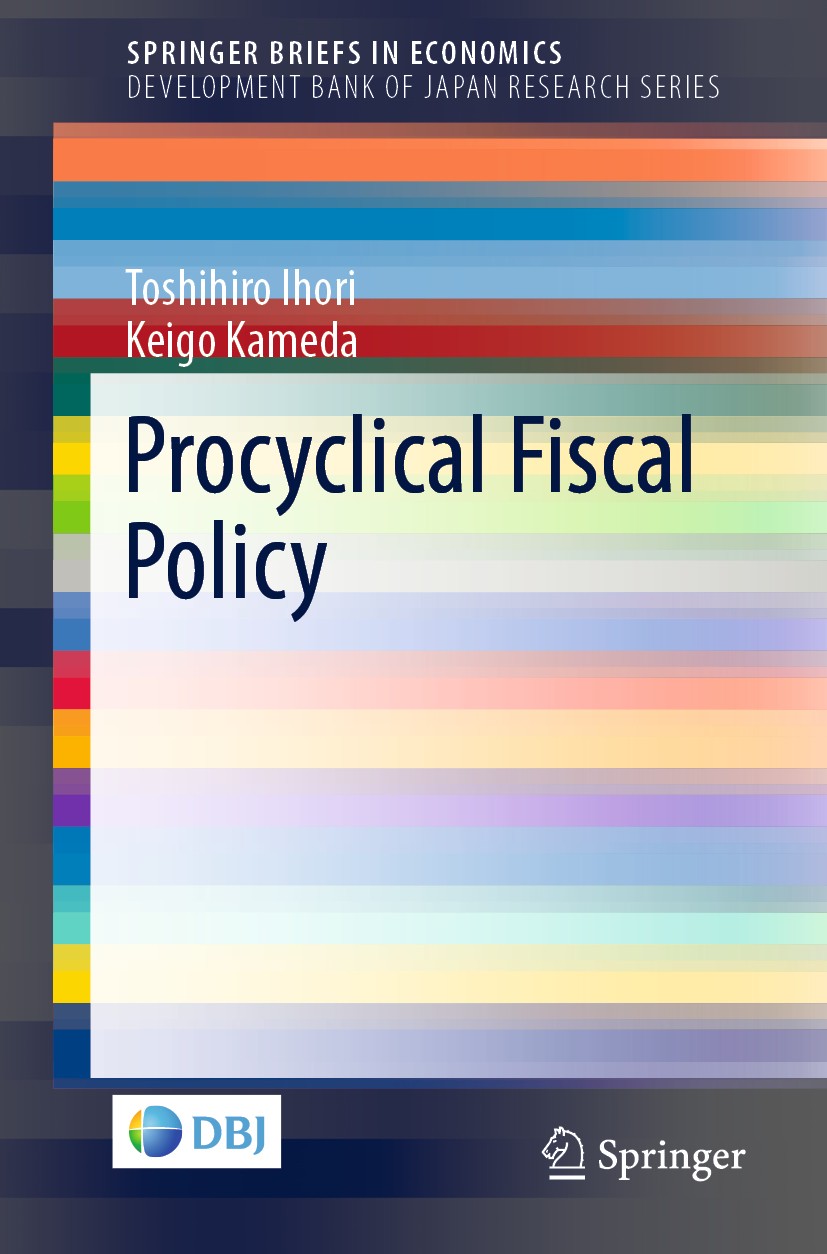| 书目名称 | Procyclical Fiscal Policy |
| 编辑 | Toshihiro Ihori,Keigo Kameda |
| 视频video | http://file.papertrans.cn/760/759104/759104.mp4 |
| 概述 | Develops a new and plausible explanation as to why and when governments should control the budget deficits procyclically.Empirically shows how democratic economies whose government functions weakly sh |
| 丛书名称 | SpringerBriefs in Economics |
| 图书封面 |  |
| 描述 | .Conventional wisdom dictates that a fiscal policy should be counter-cyclical. However, contrary to this conventional views, recent research has demonstrated that fiscal policy is actually procyclical in most developing countries. In this book, we attempt to propose a new interpretation of this procyclicality after reviewing theoretical and empirical evolution of the research. In particular, by incorporating the political effort behavior of private agents into a weak government model, we explore how income fluctuations affect the optimal budget deficits in a political economy. If the government can control the political behavior, normally, the optimal budget deficit should rise in a recession as a first-best case; however, interestingly, a recession does not necessarily prompt an increase in the budget deficits in a second-best political economy. The response of the budget deficits to income fluctuations mainly depends on the efficiency of political effort, which may correspond to the degree of democracy and bureaucratic efficiency of the governments. We test the prediction of the pro-cyclical fiscal policy and find it applicable for democratic countries with semi-efficient governm |
| 出版日期 | Book 2018 |
| 关键词 | fiscal policy; procyclicality; deficit ceiling; fiscal privilege; political effort; income fluctuation |
| 版次 | 1 |
| doi | https://doi.org/10.1007/978-981-13-2995-1 |
| isbn_softcover | 978-981-13-2994-4 |
| isbn_ebook | 978-981-13-2995-1Series ISSN 2191-5504 Series E-ISSN 2191-5512 |
| issn_series | 2191-5504 |
| copyright | Development Bank of Japan 2018 |
 |Archiver|手机版|小黑屋|
派博传思国际
( 京公网安备110108008328)
GMT+8, 2026-1-22 19:35
|Archiver|手机版|小黑屋|
派博传思国际
( 京公网安备110108008328)
GMT+8, 2026-1-22 19:35


